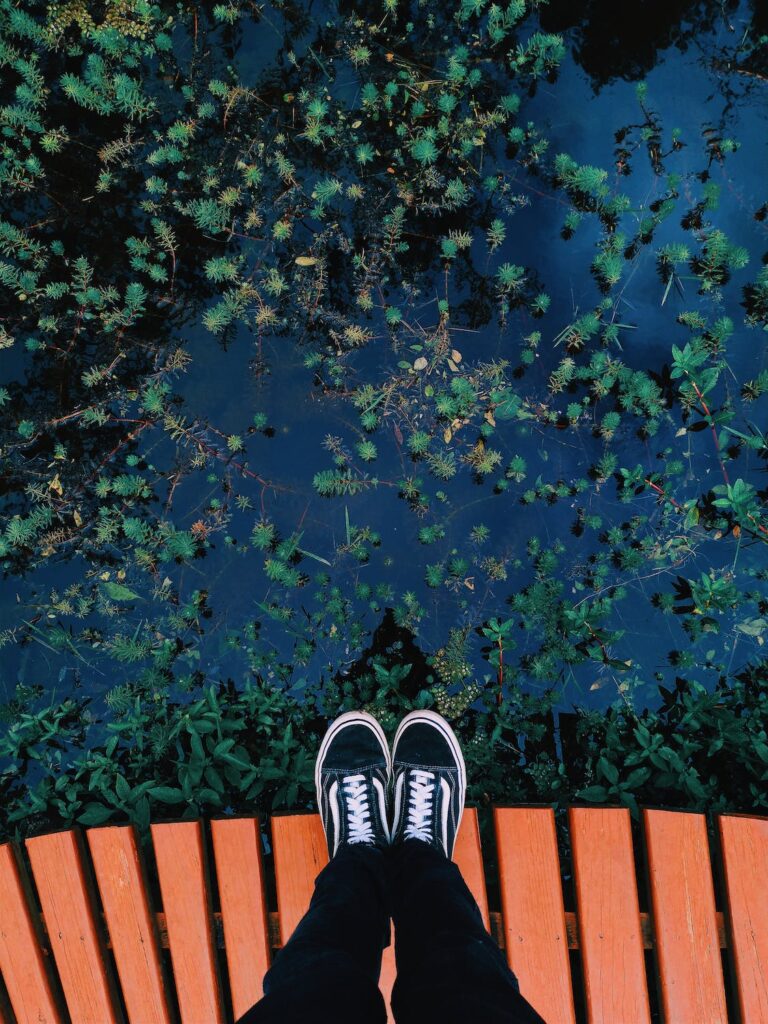The pond of any fish keeper worth their salt will have a filtration system in place. This will keep the pond clean and filter out any harmful chemicals before they may affect the aquatic life there.
Carefully attending to the filter foams within your pond filter is essential since they serve two crucial purposes. The primary goal is to prevent large items like leaves, fish faeces, and other trash from being washed back into the pond.
The second purpose of a quality pond filter system is to provide a home for beneficial bacteria that digest nutrients in the pond water and provide a healthy environment for the pond’s occupants. Even though the unattractive green slime and muck on the filter sponge may make it look less than ideal, it is actually helpful.
Choosing filter media for a pond requires careful consideration of many factors. What needs to be done is as follows:
1. Pond Dimensions
When the pond size increases, so must the size of the filtration system. The price of pond filter media increases as its size increases. This process goes hand in hand.
More than one kind of filtration system is usually needed to keep a pond of a certain size clean. Mechanical filtration and your personal care of the rest will do for smaller ones. With the right dimensions in mind, choosing the right option will be an easy task.
2. Spending Plan
You get what you pay for, as is the case with everything else. From baby stroller oem to everyday dresses and even your grocery comes with a budget plan.
In the case of pond filters, the rule is equally simple. The greater the complexity of a filtering system, the higher its price. Because they rely on free, natural processes like gravity, mechanical water purification systems are the most cost-effective option.
On the other and, the technology required by UV sterilizers causes them to be more expensive. Do not overspend to the point where you can’t pay your bills.
3. The Local Environment
Plants will naturally flourish in the soil around any body of water, and a pond is no exception. Nonetheless, there are localities where conditions are just too severe for plant life.
In contrast to a pond in a wetter environment, plant debris will be less of an issue in a dry climate pond. The development rate of algae is greatly increased in wet climates compared to hotter ones.
4. Use of Energy
A pump must be left on continuously to keep the water moving through some filtration systems. Using this method costs electricity, which might add up quickly if you aren’t careful. If an electric pump is a must, choose one with low energy consumption to save money.
Same rule goes for the pond’s lighting, if you’ve added any. In case this is a new thing for you, the internet is full of answers when you ask how to connect led strip lights to a pond? Led lights consume minimum energy so adding them is a good cheap idea.
5. Sum of Water
The volume of water that can be contained in a pond is proportional to its depth and its width. The quantity of water needed to fill a pond completely is a major consideration in determining its optimal depth. Filtration systems may struggle to cope with larger volumes of water than they were intended to treat.
Because of this, you should pay particular attention to the pond’s water capacity while building it. So that you don’t have to spend too much on maintenance once it’s up and running.
Taking Care Of Pond Filters – The Right Way
Maintaining your filter regularly is essential for optimal pond filtration, regardless of the type of filter you use. The ‘quick-clean’ or ‘back-flush’ feature found on some filters is incredibly useful for weekly maintenance, but it shouldn’t be relied on solely.
However, you should still disassemble your filter regularly to clean the foams properly.
The filter foams, brushes, and other media must be rinsed in pond water, not regular tap water. The chlorine and chloramine will annihilate all the beneficial bacteria that grow on the media in tap water. These beneficial bacteria are crucial to the pond’s ecosystem and help prevent harmful algae growth.
Conclusion
When working with pond filter media, whether they are a complex piece of equipment like a UV sterilizer or a straightforward aquarium ceramic ring, it is best to be knowledgeable before beginning work on the project because there is no space for errors.
Fish are sensitive creatures that notice even minute shifts in their environment. Experts in pond media filters should be called upon as often as possible.
Manufacturers of filters are another resource; they will gladly advise you and answer any queries you may have.
